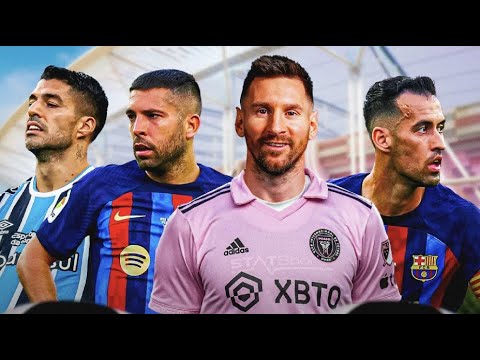Against a formidable Paris Saint-Germain side, Inter Miami`s defense was inevitably tested. While no team could easily disrupt a move as well-executed as the one leading to PSG`s second goal by Joao Neves, the larger issue wasn`t solely PSG`s strength but rather how ill-suited Lionel Messi`s team appeared for such a challenge.
Observing the match, one might recall less successful periods at the Parc des Princes or even Messi`s final years at Barcelona. These were teams seemingly structured to accommodate a star player`s preferences, often lacking defensive cohesion and overly reliant on individual moments of brilliance when in possession, struggling significantly without the ball.
Inter Miami, in this context, feels like a throwback to those problematic Messi teams – reminiscent of the later Barcelona sides where he shouldered too much offensive burden, or the odd PSG era where attacking talent was abundant but the team failed to function as a cohesive unit against well-organized opponents.
While Lionel Messi has brought immense value to MLS and boosted Inter Miami`s profile and results, structuring the team around him by reuniting him with aging former teammates, instead of surrounding him with dynamic, younger players capable of providing energy and cover, has created a squad poorly equipped to face the world`s best.
Perhaps in retrospect, the club`s owners might regret prioritizing the reunion aspect over building a more competitive, balanced team. The allure of Miami`s lifestyle and financial incentives were significant factors in Messi`s move; it`s debatable whether he would have chosen differently simply to avoid playing without his old Barcelona friends.
Messi still demonstrates flashes of staggering genius, like the brilliant pass that set up Luis Suarez for a volley. While a younger Suarez might have buried it, these moments from the veteran core, while nostalgic, highlighted the gulf between their past glories and the demands of the modern game, vividly shown by PSG`s performance.
Messi retains the technical ability to excel at the highest level; integrated into a top European side with pace around him, he could still thrive. However, in the context of Inter Miami, his presence evokes a sense of a legendary figure whose brilliance flickers but whose overall impact is limited by the team`s physical and tactical shortcomings.
The 4-0 scoreline might even flatter Inter Miami, suggesting PSG didn`t need to fully exert themselves, possibly due to the heat. PSG`s attacking intent was clear from early on, but Miami consistently failed at basic defensive tasks needed to stem the flow.
A prime example was the failure to defend the back post, allowing Joao Neves, one of the smallest players, to head home unmarked – a basic error indicative of a pattern of defensive vulnerability, particularly on set pieces, which has plagued Inter Miami in MLS this season.
These defensive frailties and a passive approach without the ball echo the issues seen in past teams built around individual stars without sufficient tactical structure. While Inter Miami`s individual talent might allow them to overcome these problems against MLS opposition, they are brutally exposed by elite European teams like PSG.
Ultimately, the match underscored that Inter Miami`s current composition, despite Messi`s presence, was not designed to genuinely challenge a top European side, revealing the limitations of a team built on individual nostalgia rather than cohesive tactical execution and defensive solidity.







